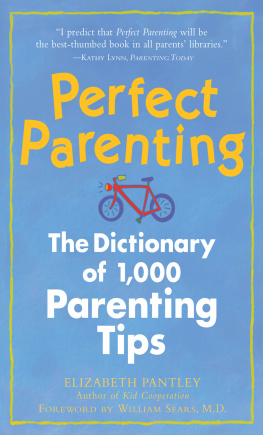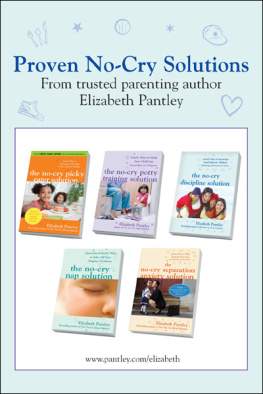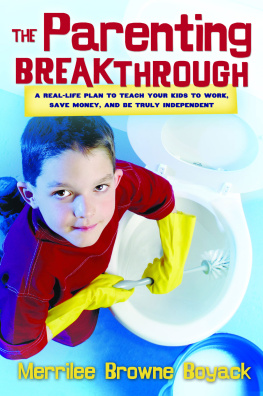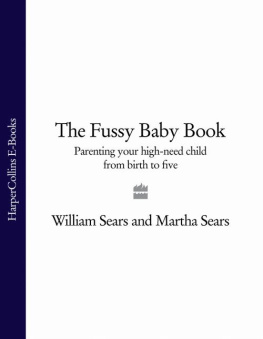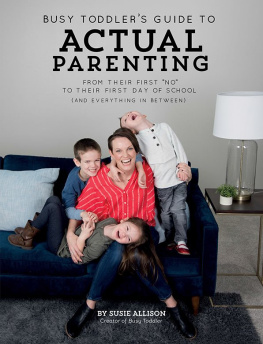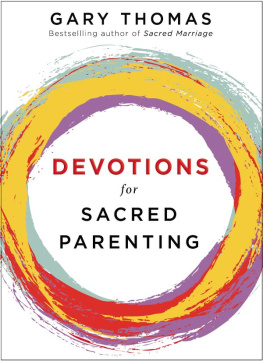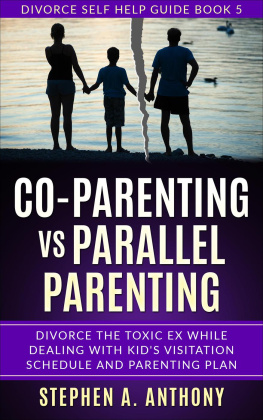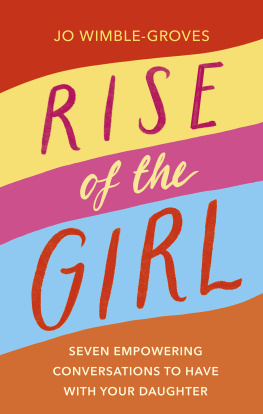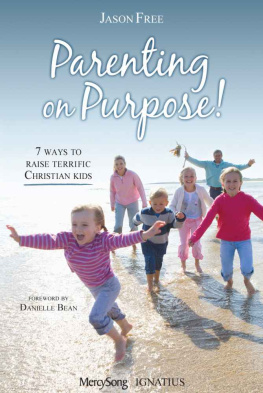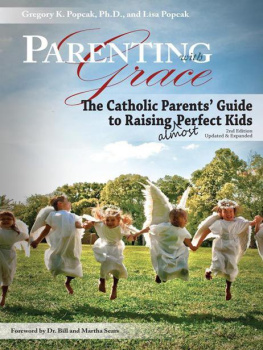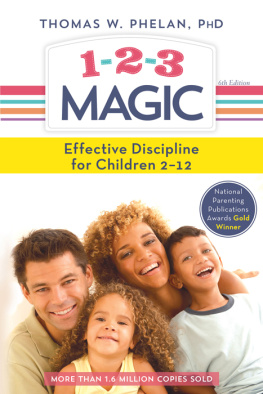ABOUT THE AUTHOR
Parenting educator Elizabeth Pantley is the president of Better Beginnings, Inc., a family resource and education company. Ms. Pantley frequently speaks to parents in schools, hospitals, and parent groups, and her presentations are received with enthusiasm and praise. She is a regular radio show guest and often quoted as a parenting expert in magazines such as Parents, Parenting, Working Mother, Womans Day, Good Housekeeping, and Redbook. She publishes a newsletter, Parent Tips, that is distributed in schools nationwide, and is the author of one previous book, Kid Cooperation: How to Stop Yelling, Nagging and Pleading and Get Kids to Cooperate. She and her husband, Robert, live in Washington State with their three children, grandma, and assorted family pets. She is active in her childrens school and sports activities. Ms. Pantley serves on an education advisory council and as the school PTA president.
ACKNOWLEDGMENTS
I am very grateful for the wonderful support of the many people who have made this book possible.
I would like to express my sincere appreciation to
Susan Schwartz, at Contemporary Books. An editor with vision, patience, and wisdom.
Meredith Bernstein, of Meredith Bernstein Literary Agency. An agent with incredible energy and enthusiasm.
Dr. William Sears. An extraordinary man who has enhanced the lives of millions of parents, myself included.
Susan Beekman, Janice Boyles, Joan Comeau, John Devine, Tamara Eberlein, Len Fellez, Peter Herbst, Rona L. Levy, Kathy Lynn, Katey Roemmele, Connie Schulz. People who believe that the ideas presented in this book will be helpful to families everywhere.
Barbara Quick. A friend whose insight led me in the right direction.
Michelle Feldman and Rene Strumsky. With appreciation for a lifetime of irreplaceable relationshipssister to sister.
Dolores Feldman. My mom. With sincerest thanks for teaching me that love is the most important gift you can give your children.
Angela Pantley. My cherished daughter, who opened my heart to all the joy and wonder of being a mother and who teaches me wondrous things about life.
Vanessa Pantley. My precious daughter, who brings music, laughter, and serenity to my life with her gentle presence and soulful depth.
David Pantley. My delightful son, who continually fills our home and my life with zest, enthusiasm, and a very special love.
Robert Pantley. My perfect husband.
ADDITIONAL INFORMATION
To obtain a free catalog of parenting books, videos, audiotapes, and newsletters available by Elizabeth Pantley:
Write to the author:
5720 127th Avenue NE
Kirkland, WA 98033-8741
Call the toll-free line:
(800) 422-5820
F AX your request:
(425) 828-4833
Visit the website:
www.pantley.com/elizabeth
E-mail the author:
elizabeth@pantley.com
A
ALLOWANCES
See also Chores, money and Money
SITUATION
Should my children get an allowance? How much should I give them? Should it be tied to chores, performance, or behavior?
THINK ABOUT IT
The purpose of allowance is to teach kids how to handle money. They can learn from early experiences how to make money decisions when the amounts are small and the decisions are simple. Children from kindergarten age on can begin to understand the significance of money and its value to them. Given this opportunity, children will be less likely to grow into adults with empty bank accounts and an alphabetical assortment of credit cards.
SOLUTIONS
Its best not to tie allowance to chores. If you do, there may come a day when the child doesnt need or want your money and can logically pass on the chores. How would you respond if your child says, I dont need my allowance this week, Dad, so I wont be doing the dishes or taking out the trash. ( See also Chores.) From this, I shudder to think why you would tie allowance to performance or behavior!
How much allowance to give a child has little to do with how much you have to give and more to do with what the childs money needs are. Does the child buy lunch at school, school supplies, or clothes? Or is allowance purely pocket money? Does the child receive money from other sources, such as from relatives? Its a good idea to give a child enough money to purchase his necessities and just a little more for extras.
Help your child create a budget. Discuss the value of having a set amount for spending, short-term savings, and long-term savings. Ask your child if he has a particular item he would like to save for. Find out the cost of the item and divide the total cost by the weekly (or monthly) amount hes willing to put aside for it. Make a graph to show the steps toward reaching his goal. Celebrate success!
Let your child open a bank account for savings. Look for a bank that offers a special childs program. Typically, these programs include a newsletter and special incentives. Shop around for the best program. Encourage your child to set a goal for a savings amount, and plan a reward to celebrate when the goal has been reached.
A junior- or senior-high-school-aged child can have allowances deposited directly into a personal checking account. This gives a young person practice in using and managing a bank account. At first, give the child one or two checks at a time and teach him how to balance his checkbook. Over time, and with practice, hell be able to take charge of the account. A big caution: Until a parent is sure the child can handle this responsibility properly, the account should be in both names, and the monthly statements should be reviewed together.
ALLOWANCES, and raises
See also Chores, money and Materialism Money
SITUATION
My child wants a raise. How can I make the decision of whether to increase her allowance?
THINK ABOUT IT
When your child asks for more money, its easy to give a knee-jerk yes-or-no response. Instead, use this as a golden opportunity to teach an important lesson about money.
SOLUTIONS
Ask the child to provide you with a written budget of what the money is needed for, along with a written request for a raise explaining why its desired. If the child is able to present a logical, well-thought-out request, its safe to say shes ready for a bigger allowance.
Ask the child to create an extra job for which she can be paid. This should not be a regular household chore but something extra. Some ideas might include baby-sitting younger siblings, taking over one of the parents current chores (such as doing the laundry), or providing a service for a parents business (such as envelope stuffing, sorting, or filing).
Suggest that the child look outside the family for work. The neighborhood is typically a fertile ground for childrens fledgling businesses. Some ideas are car washing, yard weeding, baby-sitting, housecleaning, pet sitting, pet walking, or pet-poop pickup (a good choice because the neighbors are very willing to let someone else do it!) .
Often the child is actually receiving sufficient allowance but is unskilled in money management. Help the child create a budget and an accounting log to record and monitor spending.
ANGER, childs
See also Arguing, with parent Back talk Disrespect Fighting Hate, expressions of Meanness Respect, teaching Self-esteem, low Siblings, fighting

